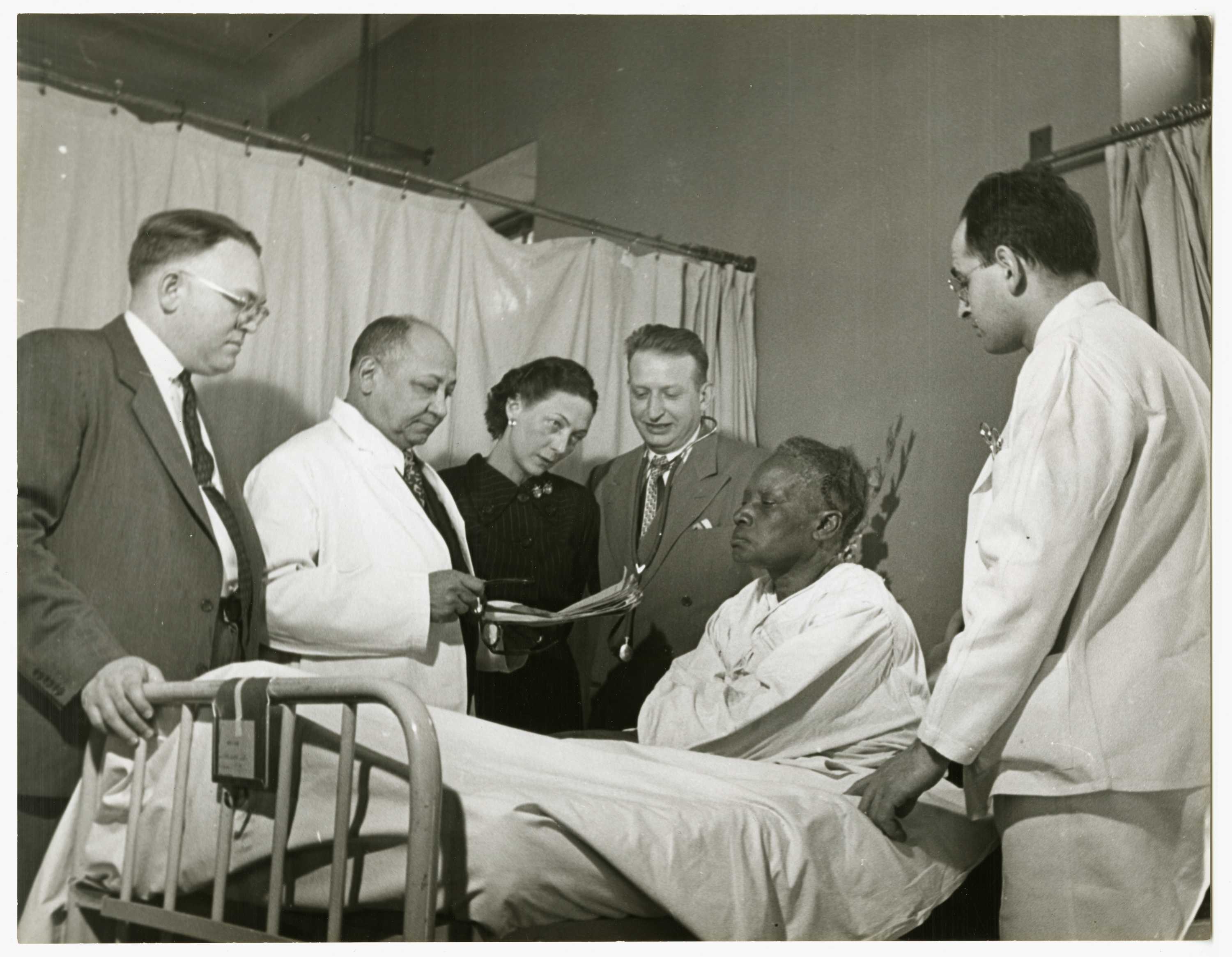Graduated Harvard Medical School Class of 1915
Louis Tompkins Wright, born on July 23, 1891, in La Grange, GA, was son of physician Dr. Ceah Ketcham Wright. Dr. Wright died when Louis was four years old, and his mother, Lula Tompkins Wright, later remarried another physician, Dr. William Fletcher Penn, the first Black medical graduate of Yale University.
Wright graduated from Clark University in Atlanta, GA, in 1911 as class valedictorian, and graduated from Harvard Medical School in 1915. Wright graduated cum laude, and ranked fourth in his class. Despite his academic achievement, he was asked to march at the end of the procession rather than in his rightful place at the head.
He applied for an internship at Massachusetts General Hospital, the Boston City Hospital, and the Peter Bent Brigham Hospital, but was turned down from each hospital. He accepted a position at the segregated Freedman’s Hospital in Washington, D.C.
At the end of his internship in 1916, Wright took the licensing exam in Maryland, Georgia, and New York, achieving high scores in each state. He returned to Atlanta to practice with his stepfather, and was then commissioned as a First Lieutenant in the US Army Medical Corps.
In 1919, he settled in New York City, where he opened a general practice of surgery in Harlem and was appointed Assistant Physician in the Health Department Venereal Disease Clinic. He also accepted a position as Clinical Assistant Visiting Surgeon at Harlem Hospital. Throughout his career, Wright fought to integrate and improve Harlem Hospital and was eventually made Surgical Director.
In addition to his work at Harlem Hospital, Dr. Wright was appointed police surgeon of the City of New York in 1929, the first African American to be appointed as police surgeon in the United States. He was also the first African American admitted to a fellowship in the American College of Surgeons (1934) and to an honorary fellowship in the International College of Surgeons (1950). He was a leader of the group that formed the Manhattan Central Medical Society in 1930 and a founder of the Harlem Surgical Society in 1937.
In 1948, he established both the Harlem Hospital Cancer Research Foundation and the Harlem Hospital Bulletin.
In 1934, Wright took over chairmanship of the Board of Directors of the National Association for the Advancement of Colored People (NAACP), which he occupied until his death in 1952.
Dr. Wright's papers are available at the Center for the History of Medicine.
